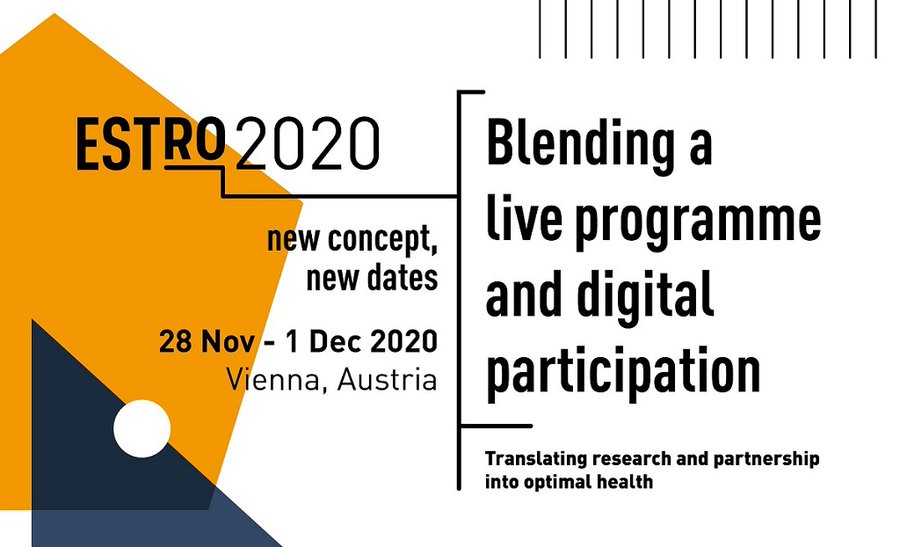
- This event has passed.
ESTRO 2020 28 Nov – 1 Dec 2020 (New Concept, New Dates) Vienna, Austria
November 28, 2020 - December 1, 2020

ESTRO 2020 will move to 28 November – 1 December 2020 with an updated blended programme.
With the extension of public health safety measures in relation to COVID-19 across the world, the conditions to organise a meeting ensuring the safety of participants this summer are not met. After liaising with the Austrian authorities to identify a timeframe that could safely accommodate our event, the Board of Directors came to the decision to postpone ESTRO 2020 to 28 November – 1 December 2020.
In order to allow broad and continuous participation, ESTRO have decided to adopt a new concept: a reduced Congress with a live programme in Vienna along with a digital participation. Additionally, it will be complemented by a wealth of online activities prior the congress, which will feed into the live lectures.
This new format is meant to combine the value of sharing content and experiences as well as networking opportunities.
Access to online content will be included in the registration fee to participate in the physical Congress. Members who are unable to attend can access the online content and the Congress session in live streaming by paying a digital subscription.
More information will be given in the coming weeks about the updated programme.
Please regularly refer to ESTRO 2020 webpage for more details.
ESTRO is a multi-professional society focusing on radiation oncology as a core component of high- quality, multidisciplinary cancer treatment, in partnership with other oncology societies
In line with the ESTRO vision 2030 ‘Radiation Oncology. Optimal Health for all, together’, ESTRO 2020 will convey the theme ‘Translating research and partnership into optimal health’.
The interdisciplinary component of the scientific programme, getting more space compared to the past editions, will include sessions on the following topics:
• How can AI improve contouring?
• Spatially fractionated radiation therapy (SFRT) – GRID therapy
• Cancer metabolism: implication for imaging, radiation response prediction and tumor radiosensitisation
• Cardiac radio-ablation
• FLASH: Radiotherapy with ultra-high dose rates
• Ultra-hypofractionation for localised prostate cancer
• Management of complex skin targets: which radiation technique
• MR-guided Radiotherapy: state of the art and future perspectives
• Preventing radiation-induced toxicity for the H&N region
• Dose accumulation and re-irradiation for breast and thorax
• How PROMS will change radiotherapy practice
• Targeting microenvironment in radiotherapy: where are we now?
• Redefining oligometastatic disease: incorporating advanced imaging into clinical trials
• Combined radiotherapy and immunotherapy in NSCLC

